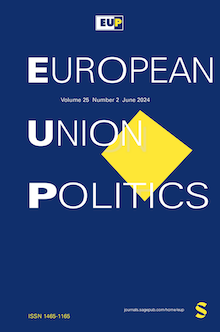Dans la même rubrique
- CEVIPOL
- FR
- Publications
- Articles
- Publiés en 2024
-
Partager cette page
From fringe to front? Assessing the voting influence of the radical right in the European Parliament
By Nathalie Brack and Awenig Marié
ÉDITION
Sage Journals
COLLECTION
European Union Politics
LIEN
COLLECTION
European Union Politics
LIEN

Abstract
Scholars have long believed that the influence of radical right parties in the European Parliament was indirect due to their internal heterogeneity, limited involvement in parliamentary activities, and the existence of a cordon sanitaire. However, the consolidation of these parties, marked by the Identity and Democracy group becoming the fourth largest group in 2019, raises concerns about their impact on European Union decision-making. This article seeks to understand the extent and conditions under which the radical right group in the European Parliament can influence policymaking. By analysing roll-call votes from the 9th term (2019 to 2024), we introduce a measure of voting influence, operationalised as the ability of a party group to sway the outcome of a vote in plenary. Our analysis reveals that while the radical right group frequently joins winning majorities in the European Parliament, its voting influence remains limited because of the low levels of conflict in plenary.
Mis à jour le 14 août 2024
